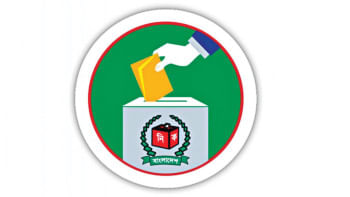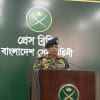48.5pc yet to decide whom to vote for

The number of Bangladeshi voters undecided about their choice in the upcoming polls has risen sharply over the past eight months, shows a BRAC Institute of Governance and Development (BIGD) survey.
The figure now stands at 48.5 percent, up from 38 percent in a survey in October last year.
The Pulse Survey-3 was conducted between July 1 and 20 this year through telephone interviews with 5,489 respondents representing both rural and urban demographics.
Of them, 53 percent were male and 47 percent female, with 73 percent from rural areas and 27 percent from urban centres.
The survey assessed public perceptions of the interim government's performance, reform priorities, the upcoming election, and the popularity of political parties.
The October survey covered 4,158 respondents.
Yesterday, BIGD Fellow of Practice Syeda Selina Aziz presented the latest findings during a joint event organised by BIGD and the citizen reform platform "Voice for Reform" at the National Archives auditorium in the city's Sher-e-Bangla Nagar.
The data paints a picture of an electorate increasingly uncertain as the election draws closer.
According to the results, 14.4 percent of the respondents did not wish to disclose their preferred candidate, while 1.7 percent said they would not vote.
Asked which party they intended to vote for, 12 percent named the BNP, 10.4 percent Jamaat-e-Islami, and 2.8 percent the National Citizen Party (NCP).
Eight months earlier, those figures stood at 16.3 percent for the BNP, 11.3 percent for Jamaat, and two percent for a "new political party formed by students", indicating slight declines for BNP and Jamaat, and a modest rise for the student-led NCP.
Support for the Awami League, now barred from political activities, fell from 8.9 percent in October to 7.3 percent in July, while Jatiya Party's share declined from 0.7 percent to 0.3 percent, and Islamist parties dropped from 2.6 percent to 0.7 percent.
However, when asked which party they believed would win in their constituency, 38 percent predicted a BNP victory, followed by 13 percent for Jamaat, seven percent for the AL and one percent for the NCP.
Asked if Bangladesh is on the right track politically and economically, 42 percent said the country is on the right path politically, down from 56 percent in October. In contrast, 45 percent believed the country is economically on the right path, up slightly from 43 percent.
On average, respondents rated the interim government's performance at 63 out of 100, compared to 68 in October.
The survey found that 51 percent wanted comprehensive reforms before the election; 17 percent supported holding polls only after urgent reforms; and 14 percent preferred the election without reforms. Thirteen percent had no opinion.
On reform priorities, 30 percent wanted improvements in law and order; 19 percent each called for reducing political unrest and reforming the electoral system; 17 percent urged tackling corruption; 16 percent mentioned judicial reforms and boosting the economy; 13 percent wanted essential commodity prices reduced; 11 percent demanded improved security; and 10 percent sought reduced unemployment.
Meanwhile, 32 percent wanted the election before December this year; 12 percent by February 2026; 11 percent by June 2026; and 25 percent in December 2026 or later.
A notable 70 percent believed the next national election would be free, fair, and impartial, while 15 percent disagreed and 14 percent were unsure.
The data unveiling was followed by a panel discussion with BIGD Senior Research Fellow Mirza M Hassan and Dhaka University Associate Professor Asif Mohammad Shahan, moderated by Voice for Reform co-convener AKM Fahim Mashroor. The discussants then responded to journalists' questions.

 For all latest news, follow The Daily Star's Google News channel.
For all latest news, follow The Daily Star's Google News channel. 









Comments